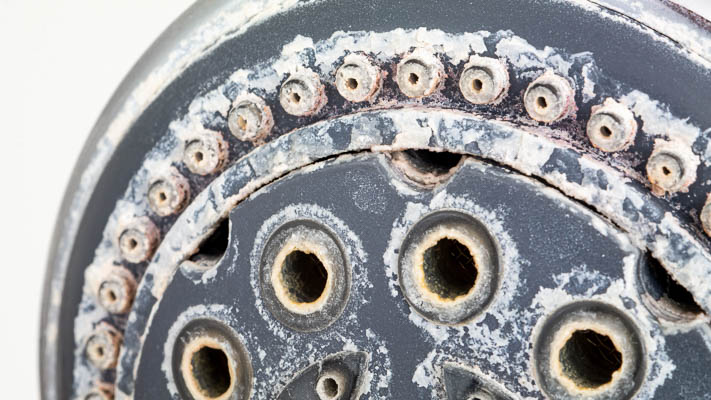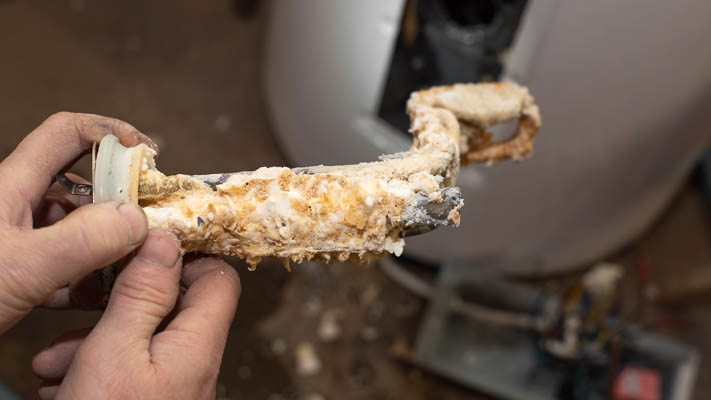What Areas in Colorado Are Most Prone to Hard Water Issues?
Across Colorado, regions with higher concentrations of dissolved minerals in groundwater are more susceptible to hard water issues.
Areas including parts of Denver, Westminster, and particularly Pueblo (you can check Pueblo's water hardness data at Pueblo Water), are often affected by hard water due to the presence of naturally occurring minerals in the soil and rock formations.
Mountainous regions may also experience hard water issues, as snowmelt and runoff can pick up minerals as they flow through the rocky terrain. Colorado's water is often harder in winter as reservoirs freeze and absorb minerals from the ground. We have a detailed article that breaks down how hard water damages plumbing systems.
It's essential to recognize that hard water issues can vary even within the same city or neighborhood, so local water quality testing is often necessary to determine the severity of the problem in a particular area.
How Can I Detect Hard Water in My Colorado Home?
There are several easy ways to detect whether your Colorado home is affected by the state's hard water. These can include:
- Water Testing Kits: Use a water testing kit, readily available at hardware stores, to determine the mineral content of your water. Rheem Treatment, a provider of water softening solutions, offers free test strips for customers to measure water hardness.
- Visual Inspection: Check for white, chalky deposits on faucets, sinks, and showerheads. These deposits are often indicative of mineral build-up from hard water.
- Soap Scum and Residue: Notice if hard water creates more soap scum and residue on surfaces, including dishes, shower walls, and glassware.
- Clothing and Linens: Feel if clothing and linens become stiff and rough after washing, as this may indicate hard water. Additionally, colors may fade more quickly when washed with hard water.
- Water Appliance Maintenance: Examine water-using appliances such as coffee makers, dishwashers, and washing machines for mineral deposits or reduced efficiency, which can be caused by hard water. Regular maintenance checks can help identify and address any issues caused by mineral build-up.
What Are the Effects of Mineral Build-Up on Plumbing Fixtures?
It's crucial to understand the impact hard water can have on plumbing fixtures throughout homes in the region.
The effects of mineral accumulation, primarily caused by hard water rich in calcium and magnesium, can manifest in several ways:
- Clogging: The gradual buildup of these minerals within pipes can lead to persistent clogs and a noticeable reduction in water flow, potentially causing frustrating blockages and hindering the efficiency of water-based appliances.
- Corrosion and Staining: The corrosive nature of mineral deposits poses a significant threat to the integrity of plumbing fixtures, including faucets, showerheads, and pipes themselves, accelerating wear and tear and often resulting in costly repairs or replacements. Not only do these deposits compromise the functionality of fixtures, but they also affect their appearance with stubborn stains that are challenging to remove.
- Reduced Efficiency of Fixtures: The decreased efficiency of fixtures due to mineral buildup translates into higher water and energy consumption, shortening the lifespan of plumbing fixtures.

Addressing hard water issues promptly is important to help stop these adverse effects, as ignoring them can lead to not only increased maintenance costs but also potentially hazardous leaks and plumbing failures.
How Can I Prevent Mineral Build-Up in My Colorado Plumbing System?
Preventing mineral build-up in your Colorado plumbing system is crucial for maintaining its efficiency and longevity, particularly in areas prone to hard water issues.
One option is to install a water softening system, which results in "softer" water through a process called ion exchange. Soft water is less damaging to plumbing and more effective for cleaning. Another option is to install a whole-home filtration system. These systems filter all the water entering a home, removing a wide range of contaminants, not just hardness minerals.
The best way to prevent mineral build-up is by repiping with PEX (cross-linked polyethylene) piping. Here at Repipe Specialists, we frequently encounter cases where hard water has caused significant damage to a property's plumbing system. There is no way to completely remove mineral build-up inside pipes, so they need to be replaced.
The Benefits of PEX Tubing
PEX pipes are renowned for their durability, flexibility, and resistance to corrosion, making them exceptionally well-suited to combat the effects of hard water.
Unlike traditional materials such as copper pipes (which are the most commonly used material in fresh water lines in Colorado) or galvanized steel, PEX pipes are less susceptible to mineral deposition due to their smooth interior surface. This helps minimize the risk of clogs, reduced water flow, and corrosion within the plumbing system.
By upgrading to PEX tubing, homeowners in Colorado can significantly reduce the need for frequent maintenance and repairs associated with mineral build-up, ultimately saving time and money in the long run. It's important to note that all piping materials are affected by hard water, including PEX. However, PEX is generally more effective against mineral build-up.
Repiping damaged pipes with PEX is not only the best way to prevent mineral build-up in your Colorado plumbing system but also ensures long-lasting plumbing for years to come.
Get your free estimate today
With over 75,000 repipes completed, we've perfected our One-Stop Repipe™ for your home.
Get a Quote for Repiping Your Damaged Pipes
Here at Repipe Specialists, we've fully replaced plumbing in thousands of homes across the USA with modern Uponor PEX tubing. We continually get positive customer feedback from customers about their whole home repipe experiences. We often exceed their expectations on:
- Speed: Our repipe crews typically complete a repipe in a day, returning on another day for wall patching.
- Convenience: Through our One-Stop Repipe™ Process, we handle everything from permits, to wall patching, to inspections.
- Cleanliness: Our crews are trained to protect your home while working (we cover all surfaces with protective sheeting), and to clean up fully at the end of each day.
- Peace of Mind: Repipe Specialists is a fully licensed plumber in every state we operate in, and we back all of our repipes with a lifetime warranty.
- Financing programs: To help take the sting out of unplanned repipe expenses, we offer several financing programs.
- Price: As a specialist that performs hundreds of repipes a week, we can deliver high-quality repipes at a lower cost vs generalist plumbers. We have an article that covers repipe cost factors in detail. Our quotes typically range from $4,500 to $15,000 depending on the size and complexity of your project.
Schedule a free in-home consult, and one of our local repipe consultants will explain all your repipe options and provide you with a written, fixed-price quote. Fix hard water damage in Colorado, repipe with PEX.

